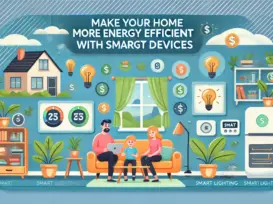Grus Home Energy - HVAC systems
Understanding the Importance of HVAC Systems in Modern Buildings
Heating, ventilation, and air conditioning (HVAC) systems play a crucial role in maintaining a comfortable and healthy indoor environment in modern buildings. These systems are responsible for regulating temperature, humidity, and air quality, creating a comfortable space for occupants to live and work in. Understanding the importance of HVAC systems is essential for building owners, facility managers, and occupants alike.
One of the primary functions of HVAC systems is to control the temperature inside a building. Whether it’s keeping a space warm during the winter months or cool during the summer, HVAC systems are designed to provide a comfortable environment regardless of the outdoor conditions. This is especially important in regions with extreme weather conditions, where proper HVAC systems can help protect occupants from heatstroke, hypothermia, and other weather-related illnesses.
In addition to regulating temperature, HVAC systems also play a key role in maintaining indoor air quality. Poor indoor air quality can have a significant impact on occupants’ health, leading to respiratory issues, allergies, and other health problems. HVAC systems help filter out pollutants, dust, and other contaminants from the air, improving overall air quality and creating a healthier environment for building occupants.
Humidity control is another important function of HVAC systems. High humidity levels can lead to mold growth, pest infestations, and other issues that can compromise indoor air quality and occupants’ health. HVAC systems help regulate humidity levels, keeping them within a comfortable range to prevent such problems from occurring.
Proper maintenance of HVAC systems is essential to ensure optimal performance and energy efficiency. Regular inspections, cleaning, and servicing of HVAC equipment can help identify and address issues before they become major problems, reducing the risk of system breakdowns and costly repairs. In addition, well-maintained HVAC systems use less energy, lowering utility bills and reducing the building’s carbon footprint.
Advances in technology have led to the development of more energy-efficient HVAC systems that offer improved performance and lower operating costs. Variable refrigerant flow (VRF) systems, smart thermostats, and energy recovery ventilation are just a few examples of innovative HVAC technologies that are revolutionizing the industry. Building owners and managers should consider upgrading to these newer systems to take advantage of their benefits, including improved comfort, energy savings, and environmental sustainability.
In conclusion, HVAC systems are essential components of modern buildings, providing comfort, health, and efficiency to occupants. Understanding the importance of HVAC systems and investing in their maintenance and upgrades can help ensure a safe and comfortable indoor environment for everyone. By prioritizing HVAC system care, building owners and managers can create a space that promotes well-being and productivity for all who inhabit it.
©2025 All Rights Reserved. Grus IoT Co.,Ltd.
